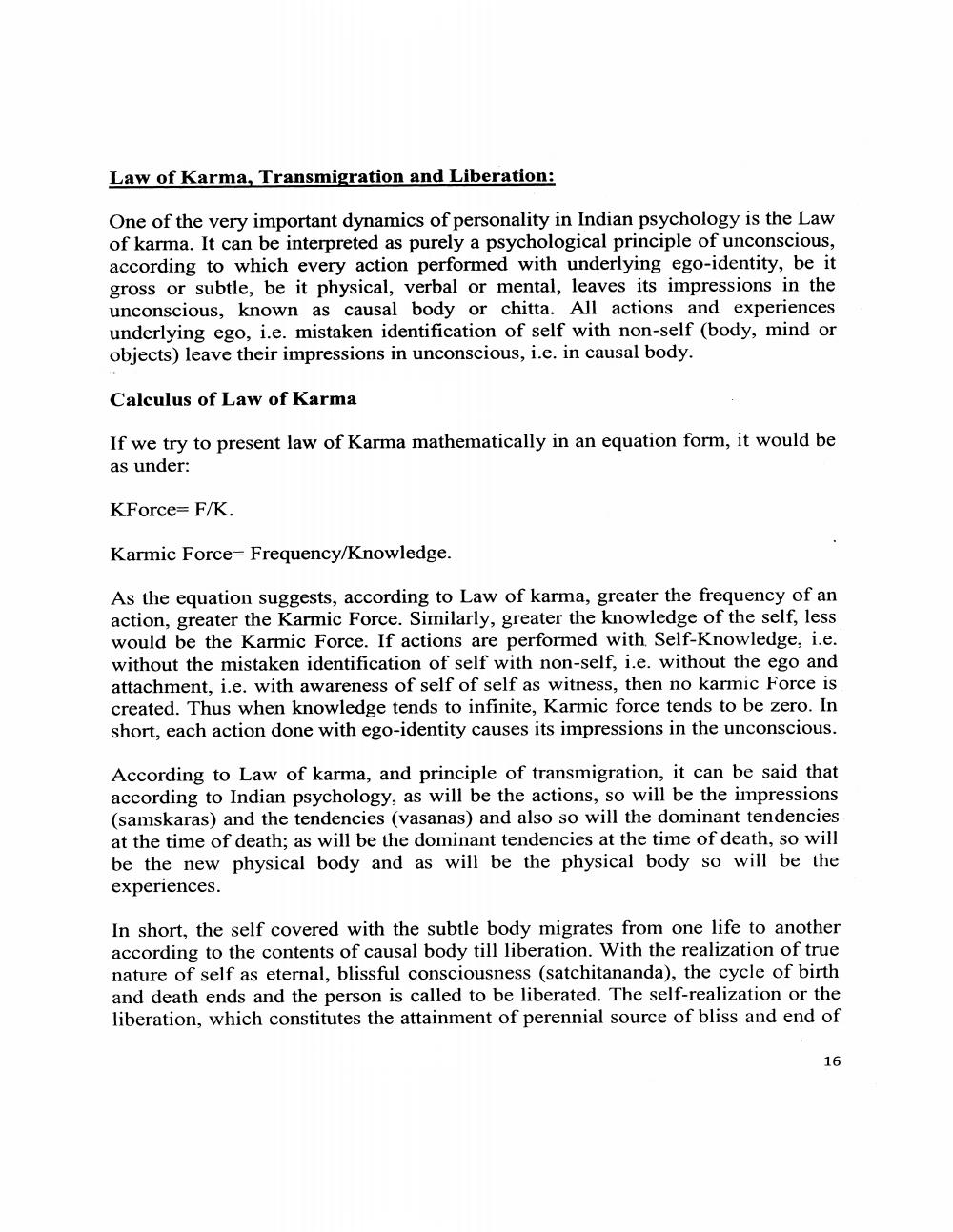________________
Law of Karma, Transmigration and Liberation:
One of the very important dynamics of personality in Indian psychology is the Law of karma. It can be interpreted as purely a psychological principle of unconscious, according to which every action performed with underlying ego-identity, be it gross or subtle, be it physical, verbal or mental, leaves its impressions in the unconscious, known as causal body or chitta. All actions and experiences underlying ego, i.e. mistaken identification of self with non-self (body, mind or objects) leave their impressions in unconscious, i.e. in causal body.
Calculus of Law of Karma
If we try to present law of Karma mathematically in an equation form, it would be as under:
KForce= F/K.
Karmic Force= Frequency/Knowledge.
As the equation suggests, according to Law of karma, greater the frequency of an action, greater the Karmic Force. Similarly, greater the knowledge of the self, less would be the Karmic Force. If actions are performed with Self-Knowledge, i.e. without the mistaken identification of self with non-self, i.e. without the ego and attachment, i.e. with awareness of self of self as witness, then no karmic Force is created. Thus when knowledge tends to infinite, Karmic force tends to be zero. In short, each action done with ego-identity causes its impressions in the unconscious.
According to Law of karma, and principle of transmigration, it can be said that according to Indian psychology, as will be the actions, so will be the impressions (samskaras) and the tendencies (vasanas) and also so will the dominant tendencies at the time of death; as will be the dominant tendencies at the time of death, so will be the new physical body and as will be the physical body so will be the experiences.
In short, the self covered with the subtle body migrates from one life to another according to the contents of causal body till liberation. With the realization of true nature of self as eternal, blissful consciousness (satchitananda), the cycle of birth and death ends and the person is called to be liberated. The self-realization or the liberation, which constitutes the attainment of perennial source of bliss and end of
16




